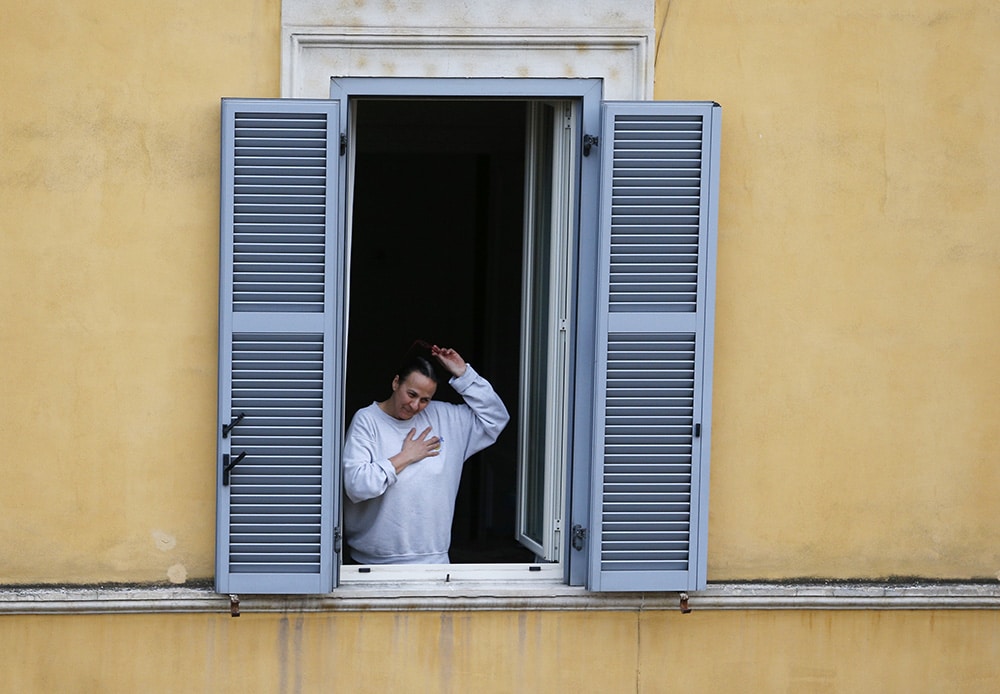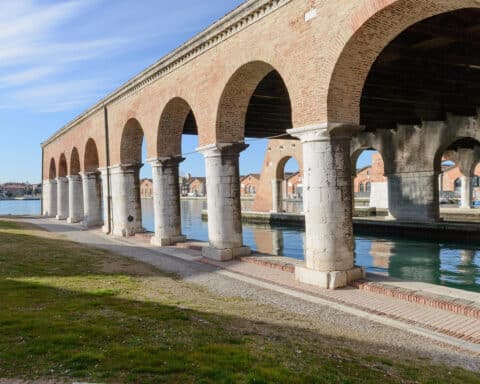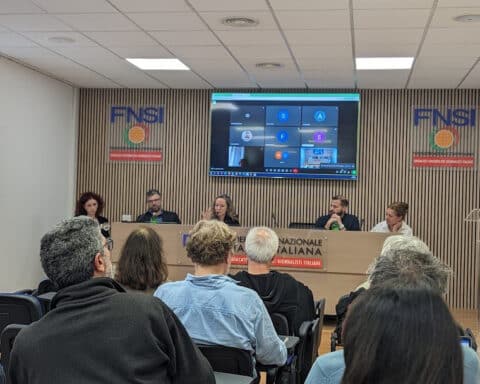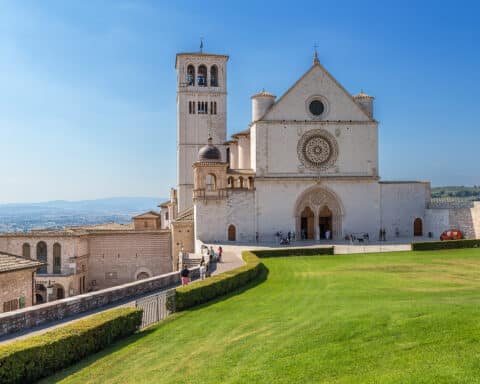In February, Italians danced and laughed amidst clouds of colorful confetti during the jubilant Carnival celebrations leading to Lent. By March, northern Italy had fallen eerily silent. Here in Rome, things changed from relatively normal to lockdown quickly.
On March 9, my husband and I enjoyed a typical Sunday in the park, watching kids play soccer and Frisbee. The next day we were in complete lockdown and told that if we left the house for anything other than essentials — medical needs, exercise and grocery shopping — we would be fined.
And so my husband’s simple declaration, “We need garlic,” no longer means a quick jaunt to the neighborhood supermarket, but now indicates the start of a journey. We have come to expect a long line in which each person politely stands one meter apart. Businesses limit the number of patrons inside, based on store size so that shoppers can always maintain at least a one-meter distance. Before entering, we’re given a squirt of sanitizing gel and a pair of plastic gloves. Some stores are taking customers’ temperatures.
There haven’t been runs on food or toilet paper, and store shelves are well stocked. Each seems to take only what is needed for the next few days. Italians like to eat fresh and don’t have much storage space, big refrigerators or deep freezers, so residents simply go to the store as necessary. But it’s not so bad, as the supermarket has become a social outlet. From a meter’s distance, people chat and catch up and share smiles obscured by face masks. A few even find an excuse to return to the store multiple times in a day, seeking to somehow replace the interaction they have been aching for, ever since their favorite coffee bar closed.
Although we are in isolation, there is still a spirit of solidarity among our neighbors. In the mornings, people lounge on their respective balconies, drink coffee, enjoy the sunshine and muse about the weather while solving the problems of the world, shouting from one balcony to another. Every evening at 6 p.m., we are united across the nation through the gift of music. A nightly musical flash mob means people throw open windows and step onto balconies and sing, dance and play instruments. For those who don’t claim musical talent, they wave the country’s flag or bang a pot with a spoon.
One day at noon, we all stopped what we were doing and from the windows and rooftops made the city buzz with a rousing applause for the medical professionals who are running on fumes to care for our sick. Another evening, little 2-year-old Federico smiled gleefully on his balcony as his entire block serenaded him with “Happy Birthday.” And that same night at 9 p.m., we switched off the lights of our homes and flipped on the flashlights on our cell phones to make the Rome skyline twinkle with tens of thousands of little lights of hope.
Cholera seized Italy in 1854, bringing with it excruciating symptoms and a 60% death rate. In Turin, St. John Bosco rallied his courageous pupils to help care for the sick, pick up bodies off of the streets and visit those in isolation. He arranged prayer teams to focus on fighting the scourge with the greatest weapon they had. Now, Italians are using digital technology to host prayer times, which unite a digital community.
Italy has survived plagues, sacks, natural disasters and wars, and the plan is to do it again. The situation is serious, and taking care to protect not only yourself from catching the virus, but staying at home and following precautions to refrain from infecting others is an act of charity. But some are finding that isolation isn’t so bad; families are conversing, getting to know each other, and praying together. They are discovering the musical talents of their neighbors, enjoying nature and learning to appreciate the gift of freedom. And many are choosing to intentionally rise up to help their loved ones and neighbors get through this with grace.
Statistically speaking, for most of us, our biggest inconvenience will be to have to stay at home for a while. As one Italian wrote, “Eighty years ago, our grandfathers were called to war for four years. We should be able to do four weeks on our sofas.” Since the Lord doesn’t ever put his children or his will in “quarantine” (cf. Sir 2:1-18) there is no doubt that even now, in these difficult circumstances, he is calling each of us to do something particular.
In searching for that “particular,” I was inspired to initiate the “make your corner brighter” movement to encourage people to actively think about how to do good things for each other, even while in lockdown. These weeks can be a precious time to implore God’s help to understand how he is asking each of us to rise up and share his grace and beauty in the midst of hardship. It is an opportunity to intentionally consider how to make your home, your neighborhood, your city and the world better, all while you’re stuck in self-isolation. It’s in difficult times like these that we can even rejoice, remembering that “affliction produces endurance, and endurance, proven character, and proven character, hope, and hope does not disappoint” (Rom 5:3-5).
During a recent musical flash mob, my husband and I danced on the balcony. On a nearby terrace, a couple held their two young sons close and swayed to the music. One woman leaned on her windowsill and sang along. Another folded her laundry as she rocked to the beat. I don’t know their names, but we greet each other every night. We are suffering together and singing together. Although we are isolated, we are united.
Ashley Noronha is a speaker and journalist and the founder of the Truth & Beauty Project. For more on the “lighter side” of quarantine in Italy, visit her and her husband’s YouTube channel at Our Crazy Rome Life.





